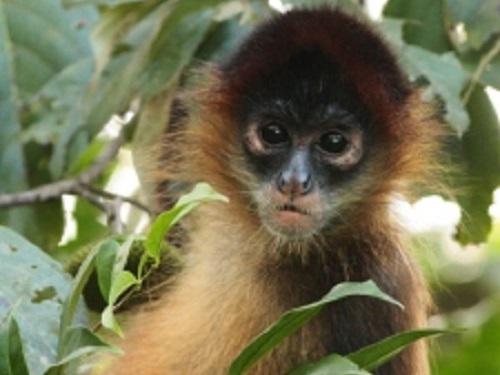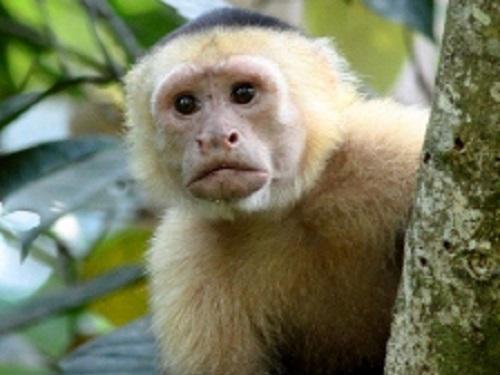Nicolas Vanlangendonck
Human activities could increase the secretion of cortisol and testosterone in primate and decrease immune system efficiency. I will use faecal samples of Alouatta palliata, Ateles geoffroyi and Cebus capicinus to link antibodies abundance and hormonal level to parasite presence.

Ateles geoffroyi geoffroyi.
I will use non-invasively collected faecal samples of Alouatta palliata, Ateles geoffroyi and Cebus capicinus to link antibodies abundance and hormonal level (cortisol and testosterone) to parasite presence. Higher stress-levels due to human presence and an increasing intra-specific competition level due to habitat fragmentation are likely to increase secretion of these hormones in non-human primates (NHP) ranging near human activities. High cortisol and testosterone levels decrease primate immune system efficiency.

Cebus capucinus.
Previous studies have indicated that species socio-ecology can significantly influence species-specific parasitic loads and resilience to human disturbance. However to date no previous study has explicitly sought to understand the relationship between physiology, gastrointestinal parasites and health in NHPs and relate that to the species’ socio-ecology; this is a crucial theme of relevance to the conservation of NHP species occurring at the human interface or in degraded landscapes (Huffman and Chapman 2009).
Alouatta palliata, Ateles geoffroyi and Cebus capicinus are three sympatric species in north eastern Costa Rica that have very different socio-ecological profile. By comparing intestinal parasites, hormones level and immune cell abundance in faeces for the three species profiles and relating these to human pressures and species socio-ecology, I will be able to understand and scale human factors impacting non-human primate health.